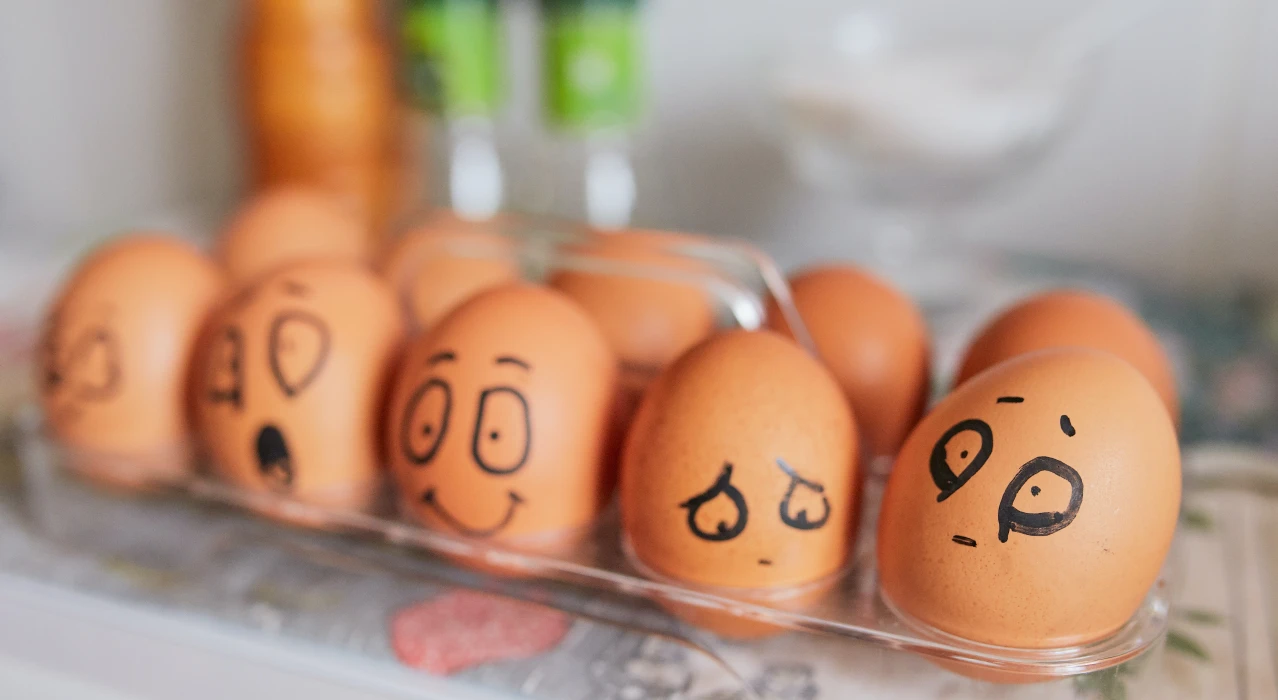Depression
- Corrine McCabe, Trainee Clinical Psychologist | Aoife Hickey, Senior Clinical Psychologist
- 10 minute read
- Last updated: September 2023
Depression is the most common mental health problem for stroke survivors – one third of people experience it.

Stroke and depression
Call 999 or 112 if: you or someone you know is about to harm themselves or someone else

A stroke is a major life event. In the early stages, people are often concerned about recovery and the wider impact of their stroke. It's common to feel frustrated, sad or scared.
It’s normal for mood to change over the course of the day or from day to day, but an ongoing change in mood can impact on your quality of life and rehabilitation, can be upsetting for you and your family and get in the way of your rehab. Low mood influences how you see yourself, the world, and your future.
Depression involves feeling persistently down or depressed for at least two weeks. Other symptoms include:
- little interest or enjoyment in doing things
- trouble sleeping or sleeping too much
- changes in appetite or weight
- feeling tired or lacking energy
- trouble concentrating on things
- moving or speaking slowly, to the point others might notice, or being more restless than usual
- thoughts that you would be better off dead or of harming yourself
- feeling bad about yourself – or believing you are a failure or have let yourself or others down
Depression can have a major impact on rehabilitation and recovery after stroke. It's associated with:
- Reduced engagement in rehabilitation
- Longer hospital stays
- Physical impairment
- Dependence
- Mortality
Depression is distressing for both the stroke survivor and their family.
If you're feeling like you want to end your life
If you're feeling like you want to end your life, it's important to tell someone. Help is available right now if you need it:
Ask your GP for an emergency appointment. Go to your nearest emergency department · call emergency services on 999/112 · call your mental health team (if you have one) · contact the Samaritans on 116 123 or jo@samaritans.org
When is low mood a problem?
When low mood gets in the way of day to day life or stroke rehabilitation, or if you have thoughts of death or suicide, depression is a problem that needs attention. When depression is a problem, you’re likely to also have sleep changes, appetite and weight changes, fatigue, and trouble concentrating. If depression is getting in the way of your daily life, you should speak to your GP (family doctor).
Treatments available
Some treatments you may be offered include psychological approaches or medication, psychological treatments or a combination of the two. At present, there isn’t enough evidence to say that one treatment approach is better than any other for depression after stroke. You can discuss with your GP (family doctor) which approach might work best for you. They may refer you to a primary care service or to a mental health team.
Stroke support groups can be helpful (like the Irish Heart Foundation). Meeting others in the same boat can help reduce loneliness, and it can be helpful to learn from what others have found useful.
Exercise can help reduce mild symptoms of depression. Both vigorous and low intensity exercise are helpful. If you’ve been cleared to exercise, build exercise into your daily routine.
Medication
Antidepressant medication can be helpful in treating depression after stroke. There are different types of antidepressants. Your doctor will discuss the possible risks and benefits with you. Antidepressants can take a few weeks to take effect.
Psychological therapies
Some therapies have been recommended for post-stroke depression. These include motivational interviewing, problem-solving therapy and cognitive behavioural therapy. These can be adapted for use with people with communication problems.
For more severe communication problems, people can be offered therapy with a greater focus on behavioural strategies such as establishing a routine and scheduling pleasant activities.
Tips to boost your mood

When low in mood, people often stop doing things that are meaningful to them, withdraw from others and stop making plans. This can take away important sources of enjoyment, meaning, identity and closeness to other people, which compounds low mood. Scheduling activities can help improve mood by breaking this cycle. These activities should be those that give you a sense of enjoyment, achievement or connection to others. Keeping an an activity diary can be useful. You can find an example here. It's important to follow through on scheduled activities, even if you don't feel like it in the moment.
Exercise helps to reduce stress hormones and releases feel-good brain chemicals (endorphins). Exercise also helps take your mind off the worries and negative thoughts which can keep low mood going.
Try relaxation exercises such as deep breathing or mindfulness to reduce stress and promote relaxation. See the list of helpful links at the end of this webpage for relaxation strategies.
Eat a balanced diet and get a good night’s sleep. Avoid alcohol or recreational drugs.
Taking a direct approach to solving problems (as opposed to avoiding problems) seems helpful. Ask yourself, “What's causing this feeling?”. There are five steps to actively solving problems:
- Define the problem. When does it happen? Where? Who is involved? Write the answers down. If there is more than one problem, separate them and deal with them individually.
- Generate as many solutions as you can think of. Even if solutions seem silly and unworkable, include them.
- Think about the implications of each of the solutions. What would be involved, exactly? Is it likely to be effective? What are the pros and cons of each?
- Choose the best solution and decide to act.
- Review what happened and weigh up whether the solution was effective. If it didn’t work out as planned, consider what you could do differently next time.
What causes depression after stroke?
Sometimes depression can be caused by changes to the brain because of the stroke itself. Sometimes it can be caused by a psychological reaction to the effects of the stroke. Some factors make depression more likely after stroke. These include:
- mental health problems before your stroke, such as depression
- communication problems (aphasia)
- physical disability
- problems with memory and thinking skills
- lack of family or social support
The diagram below shows how depression after stroke can persist:
-banner.webp)
If you think someone is in immediate danger, the fastest way to get help is to call an ambulance on 999 or go to your nearest emergency department.
In hospital, the following can be helpful:
-
- encourage your loved one’s engagement with their family and friends
- point out improvements in their condition or their progress with rehabilitation. Observable progress can be motivating
- talk with them about how they are feeling. Talking about mood does not make mood worse
- highlight your concerns to the stroke team
- help your loved one to make their hospital environment more personal. Having family photos where they can see them, their own clothes, access to music or radio, or access to any important mementos can be helpful
Following discharge from hospital, the following can be helpful:
-
- encourage your loved one to engage with their family, friends and other organisations (for example, support groups, therapies)
- encourage participation in meaningful activity and routine, though be mindful that your loved one may be more fatigued after stroke and require more time for rest and recovery
- monitor hygiene, physical recovery, medication adherence, physical health generally and sleep
- practice basic relaxation strategies with your loved one, or engage in a relaxing activity, such as listening to music
- discuss concerns and progress in an open way
- explore formal treatment options if your loved one’s mood is interfering with their daily activities or their rehabilitation. Discuss options with your GP (family doctor), stroke doctor or StrokeLINK nurse. If you have immediate concerns about your loved one’s welfare, for example immediate concerns about suicidal risk, attend your local emergency department or call emergency services (112 or 999)
Your GP (family doctor) can refer you to a specialist for more help with your mood. They may refer you to a primary care service or to a mental health service. Other options for support include the Irish Heart Foundation or brain injury Services.